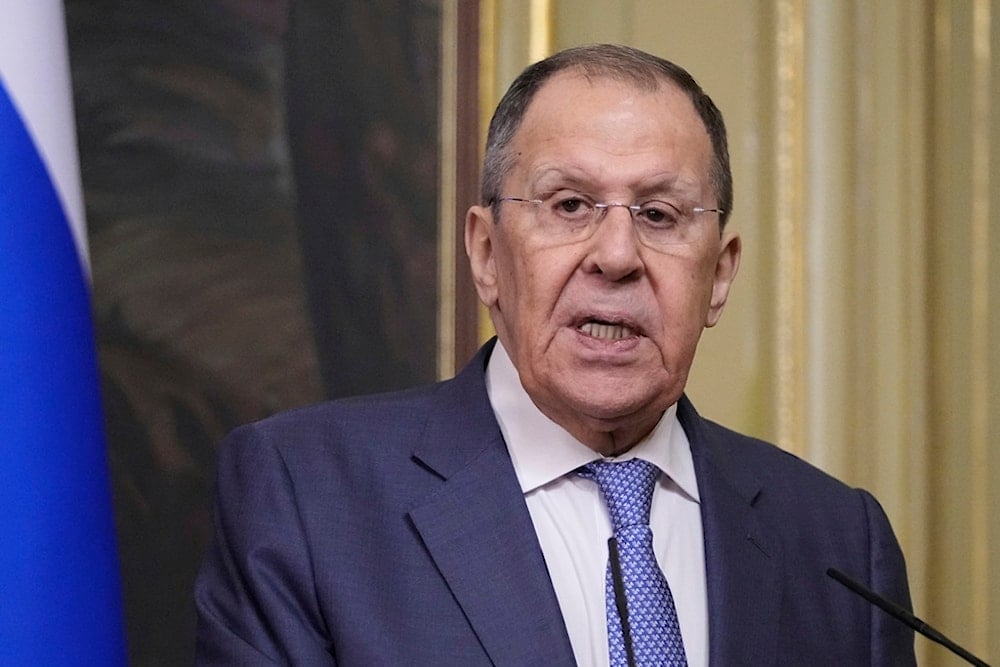Lavrov revives idea of moving UN headquarters to Sochi
The suggestion was originally made by Soviet leader Joseph Stalin.
-

Russian Foreign Minister Sergey Lavrov speaks during a joint news conference following a meeting with Turkish Foreign Minister Hakan Fidan in Moscow, Russia, Tuesday, May 27, 2025 (AP Photo/Pavel Bednyakov, Pool)
At a conference in Moscow on Monday, Russian Foreign Minister Sergei Lavrov revived a historical proposal to relocate the United Nations headquarters from New York to the southern Russian city of Sochi, a suggestion originally made by Soviet leader Joseph Stalin.
Speaking at the "Forum of the Future 2050," held from June 9 to 10, Lavrov remarked, "It is better to move the UN to Sochi. Stalin proposed that, by the way, and it was an earnest proposal. But then he did [US President Franklin] Roosevelt a favor: first it was Long Island, then New York, Manhattan."
While he admitted the idea is now impractical, Lavrov added, "The United Nations had put their roots down in New York," adding that relocating the organization would amount to "the kind of a 'great migration' that was too much to imagine."
Institutional Erosion
Lavrov's remarks come amid a period of acute institutional crisis within the United Nations. Facing a historic funding shortfall, the UN is undergoing drastic internal restructuring. A confidential memo dated April 25 and later reported by The New York Times revealed that Secretary-General António Guterres instructed agency heads to identify functions that could be relocated to cheaper cities or eliminated altogether. This followed an executive order by US President Donald Trump in February to reassess US involvement in the UN, after years of withdrawing support from key agencies.
Staff relocations and austerity measures are already underway. UNICEF plans to move operations from New York to Valencia, while the UN Population Fund is relocating to Nairobi. A hiring freeze and a projected 20% staff reduction have hit agencies across the system. The Office for the Coordination of Humanitarian Affairs (OCHA) has announced it will cut or withdraw operations in more than 10 countries, including Iraq, Libya, Pakistan, and Nigeria.
The financial crisis was compounded by the US withholding approximately $1.5 billion in contributions, a move that has forced the UN to reduce spending across the board and sparked widespread concern about the organization's ability to fulfill its global mandate. As of March 2025, only 75 member states had fully paid their budget dues, with major contributors like the US and China in arrears.
Read more: UN responds to Musk's call for defunding: 'Fund the UN'
Council Stalemate
Meanwhile, the Security Council continues to face severe criticism over its inability to act on major conflicts due to repeated vetoes, most notably by the United States. From Ukraine to Gaza, the Council's paralysis has raised doubts about the UN's role as a credible arbiter of international law and diplomacy.
Guterres's "UN80" reform initiative, launched in March ahead of the organization's 80th anniversary, aims to restructure operations to cope with a changing geopolitical and financial landscape. However, these reforms are being perceived by some as a defensive response to US pressure rather than a proactive vision for institutional renewal.
Against this backdrop, Lavrov's proposal, though symbolic, resonates with broader critiques of Western dominance in multilateral institutions.

 3 Min Read
3 Min Read










